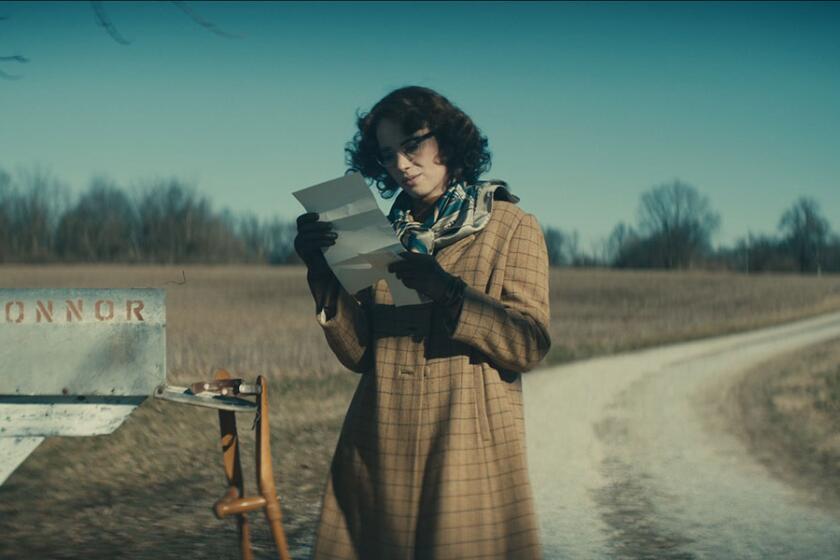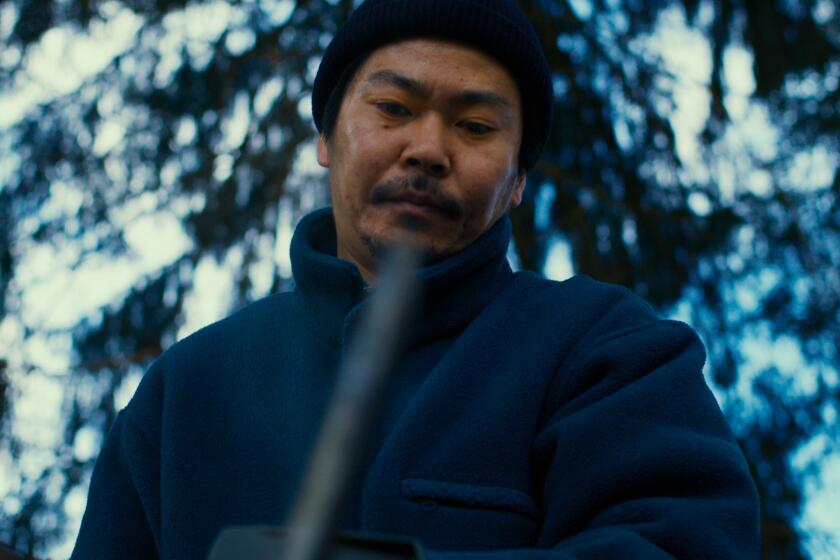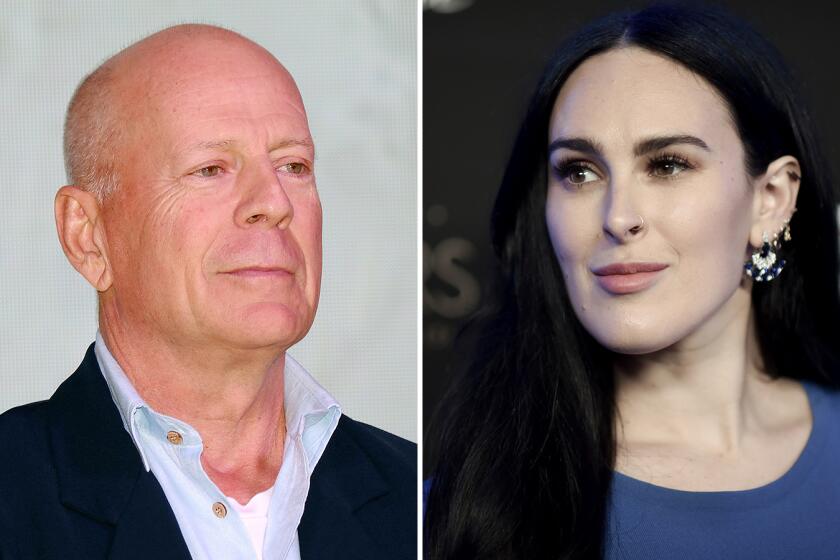MOVIE REVIEWS : Wheeling and Dealing in the ‘Shadow’
In the elegant, seductive “Shadow of China” (at Cineplex Odeon Showcase) director Mitsuo Yanagimachi, in his English-language debut, plays old Hollywood-style romance against brutal recent events most effectively in a modern-day “Casablanca” of complexity and ambiguity.
No film comes to mind in which Hong Kong, that most intoxicating of cities in its density, exotic glitter and spectacular vistas, has been used to such dramatic effect. “Shadow of China” gives its star John Lone (“The Last Emperor”) a wonderfully romantic man-of-mystery role with which he plays with aristocratic flair.
Indeed, Lone is well on his way to becoming another last emperor--of Hong Kong, this time. A teen-aged Red Guard, Lone and his girlfriend (Vivian Wu) become separated when they flee China, making their way to the crown colony in the wake of the arrest of the Gang of Four, marking the end of the Cultural Revolution. Now, just as the tragedy of Tian An Men Square starts to unfold, Lone and Wu again cross paths in Hong Kong after 13 years. By now he is a major wheeler-dealer with a new name, profiteering on the flight of capital from Hong Kong as 1997 draws near. Meanwhile, Wu has become a glamorous nightclub singer. They make a stunning couple, but no lovers could be more star-crossed.
A major talent among Japan’s younger filmmakers, Yanagimachi continues his preoccupation with the impact of wrenching change upon the individual as well as society. In both “A Farewell to the Land” (1982) and his masterpiece “Himatsuri” (1985), he lamented man’s tragic loss of contact with nature exacted in the name of economic progress.
“In Shadow of China,” which Richard Maxwell and Yanagimachi adapted from a novel by Masaaki Nishiki, the loss of contact in Lone’s character is with himself, something which this deeply reflective man increasingly recognizes. As Lone’s seemingly unassailable position in Hong Kong becomes shaky, such timeless themes as the inescapability of the past and the question of identity emerge.
Sleek, graceful but uncommonly contemplative for a film with thriller elements, “Shadow of China” provides Lone with a classic good-bad guy role which he carries off with high style. Wu, who played Lone’s free-spirited concubine in “The Last Emperor,” is gallant and lovely. Sammi Davis brings a tart sensuality to Lone’s rich British mistress. Koichi Saito has the pivotal role as a fledgling but determined investigative journalist, his awkwardness in English not inappropriate. “Shadow of China” (Times rated Mature for adult themes, situations), so evocatively photographed by Toyomichi Kurita, is not as assured as Yanagimachi’s Japanese films yet is impressive and beguiling all the same.
‘SHADOW OF CHINA’
John Lone: Henry Wong/Wu Chang
Koichi Sato: Akira
Sammi Davis: Katharine
Vivian Wu: Gloria/Moo-Ling
A New Line Cinema release of a co-production of Marubeni Corp./Nippon Herald Films, Inc./Fuji Television Network, Inc./Nissho Iwai Corp./Sunrise Inc. Director Mitsuo Yanagimachi. Producers Elliott Lewitt, Don Guest. Executive producer Satoru Iseki. Screenplay by Richard Maxwell, Yanagimachi. Cinematographer Toyomichi Kurita. Editor Sachiko Yamagi. Costumes Sandy Powell. Music Yasuaki Shimizu. Production design Andrew McAlpine. Art directors Jonathan Cheung, Dominique Lo. Set decorator Barbara Drake. Sound Xanichi Benitani.
Running time: 1 hour, 39 minutes.
Times-rated Mature (for adult themes, situations).
More to Read
Only good movies
Get the Indie Focus newsletter, Mark Olsen's weekly guide to the world of cinema.
You may occasionally receive promotional content from the Los Angeles Times.






